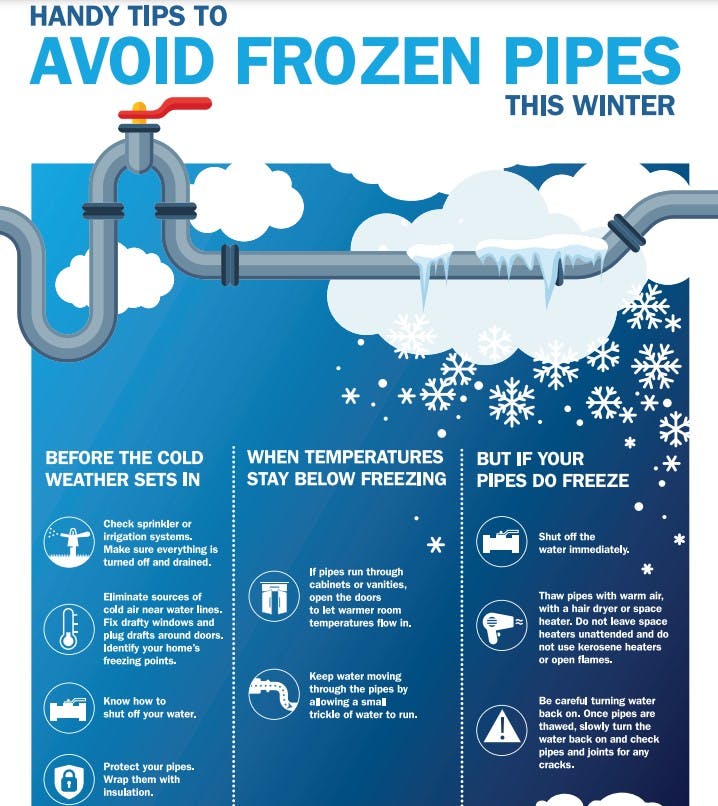News post
News post
Protect Your Pipes!
January 9, 2024
Freezing temperatures can wreak havoc on pipes, leading to costly repairs and inconvenience. In this article we will explore practical tips to help you winterize your pipes and ensure a smoothly running plumbing system during the colder months.
Insulate Exposed Pipes: One of the most effective ways to prevent pipes from freezing is to insulate them. Identify any exposed pipes in unheated areas of your home, such as basements, crawl spaces, or attics, and wrap them with insulation sleeves or tape. This extra layer provides a barrier against the cold and helps maintain a stable temperature.
Seal Gaps and Cracks: Inspect your home for any gaps or cracks that may allow cold air to seep in and reach your pipes. Use caulking or weatherstripping to seal these openings, especially around windows and doors. By creating a well-insulated environment, you reduce the risk of freezing pipes and improve overall energy efficiency.
Keep Interior Temperatures Consistent: Maintaining a consistent temperature inside your home is crucial during winter. Set your thermostat to a minimum temperature, even when you're away, to ensure that your pipes stay warm. A temperature range of 55-60°F (12-15°C) is generally recommended to prevent freezing.
Allow Faucets to Drip: On extremely cold nights, letting faucets drip can prevent water from standing still in the pipes and freezing. This continuous flow, even at a slow rate, can alleviate pressure and reduce the likelihood of pipe bursts. Focus on faucets connected to pipes along exterior walls.
Disconnect and Drain Outdoor Hoses: Before winter sets in, disconnect and drain any outdoor hoses. Water left in hoses can freeze and back up into your pipes, causing blockages and potential damage. Store hoses in a shed or garage to protect them from the cold.
Shut Off Exterior Water Sources: If you have exterior water sources like outdoor faucets or irrigation systems, be sure to shut them off and drain the water before winter arrives. This prevents water from freezing in the pipes and causing damage.
Taking the time to winterize your pipes is a small investment that can save you from the headache and expense of dealing with frozen or burst pipes. By insulating, sealing gaps, maintaining consistent interior temperatures, and taking precautions with outdoor plumbing, you can ensure a smooth and worry-free winter for your home. Stay warm and protected!
